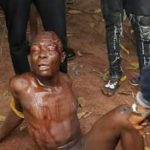Vote counting was underway across Mali on Monday after a tense presidential runoff marked by violence, polling station closures and low turnout.
President Ibrahim Boubacar Keita, 73, is the clear frontrunner in a reprise of his faceoff against former finance minister Soumaila Cisse, 68.
In a reminder of the jihadist threat that was a major campaign issue, the overseer of a polling station in Arkodia, in the northern region of Timbuktu, was shot dead by armed Islamist militants, local officials said.
On the eve of voting, authorities said they had disrupted a plot to carry out “targeted attacks” in the capital Bamako.
More than a hundred other stations in the restive north and centre were closed by security fears, according to local monitors POCIM (the Mali Citizen Observation Pool), which had more than 2,000 observers deployed around the country.
The closure figure compares with a total of 23,000 polling stations nationwide and several hundred closures in the first round.
Turnout was just 22.38 per cent, POCIM said. Participation in the first round was 42.7 per cent.
The European Union’s observer mission said Monday it was able to get to the northern town of Gao, but not to Timbuktu or Kidal, also in the north, or to Mopti in the centre.
But in 300 polling stations that its observers visited, “we didn’t see any major incident,” the mission’s leader, Cecile Kyenge, said.
– Keita the favourite –
In the first-round vote on July 29, Keita was clearly ahead, with 42 per cent against 18 per cent for Cisse.
Despite fierce criticism of Keita for his handling of the security crisis, Cisse failed to rally the support of other parties behind him for the runoff, leaving the incumbent seemingly on track for a second consecutive landslide.
Results are expected by mid-week at the earliest.
The three main opposition candidates had mounted a last-ditch legal challenge to the first-round result, alleging ballot-box stuffing and other irregularities.
But their petition was rejected by the Constitutional Court.
Cisse’s party told AFP in the early hours of Sunday that ballot papers were already circulating, several hours before polls opened.
At least six stations in the capital of Bamako, voting reports — which give the number of voters and votes cast for each candidate — were signed before the numbers were filled in, an AFP journalist witnessed.
– Violence –
Mali, a landlocked nation home to at least 20 ethnic groups where the majority of people live on less than $2 a day, has battled jihadist attacks and intercommunal violence for years.
Beyond its borders, the international community hope is that the winner will consolidate a 2015 accord that the fragile Sahel state sees as its foundation for peace.
The deal brought together the government, government-allied groups and former Tuareg rebels.
But jihadist violence has spread from the north to the centre and south of the vast country and spilled into neighbouring Burkina Faso and Niger, often inflaming communal conflicts.
A state of emergency heads into its fourth year in November.
France still has 4,500 troops deployed alongside the UN’s 15,000 peacekeepers and a regional G5 Sahel force, aimed at rooting out jihadists and restoring the authority of the state.
Source: AFP



